
br>
Two-time Olympic champion in biathlon Dmitry Vasiliev told Sport about besieged Leningrad, business in the dashing 90s e and about comparison with the German musician Dieter Bohlen.
— Tell us about Leningrad in the 60s, where you were born.
— I was born into a working-class family. Dad was a driver, and mom was a pastry chef. They were both survivors of the siege, they lost all their loved ones and were left orphans, so their fate was unenviable. They told my brother and me everything they experienced. We know many horrors of the blockade. Of course, it’s difficult for me to feel all this, like anyone who hasn’t gone through it, but what I heard is unimaginable. It’s amazing what kind of spirit people had then, how strong they were and what kind of mutual assistance they had.
This is a good example for the modern generation, when people are bitter despite the fact that the majority lives more or less well. Of course, not everyone can live well. In besieged Leningrad, people had nothing at all, no strength, but they were kinder.
My parents' stories made me think and put emphasis in life. For me it was a defining moment in my beginning life. In those days it was difficult to believe in anything, in particular in God, because there was widespread atheism. Through personal example I became a believer. We were brought up in such a family and my formation took place.
It used to be a great time. We didn't have anything, but it was great. People whine all the time, everything is wrong with them. Look, they drive foreign cars, they go abroad, but everything is always bad and everything is wrong. I would like to ask, when will this happen? If you want something, get up and do it.
In those days, we didn’t think about what was right, but we were happy. The boys spent all their time going for walks. I studied without C grades, I developed a format for myself that I did all my homework at school. He returned home, threw his briefcase and ran outside to play football. We had an apartment that our parents got.
We were glad for the little souvenirs. I remember I was already doing skiing, and a coach from the GDR came to us. We looked at him like he was an alien. When the regional competitions took place, they gave me a certificate. So I was the happiest person and slept with her in my arms. And now, if you give a person a car, then two days later he will be indignant at why they gave him one and not another. There is a reassessment of values, not only among athletes, but among people in general.
—What did your parents say about the blockade?
< br>
“What I remember most is what my mother told me. She was 10 years old in 1942, her mother was dying of hunger. My mother was going for bread and saw one distraught man standing over a dead man and cutting out a piece of meat from him with a knife. Then there were corpses everywhere, there was cannibalism, and this was punishable by execution. A 10-year-old girl witnessed this.
— This hits hard on any psyche, especially on a child.
— Such were the conditions there . Hunger drove people mad and they did not understand what they were doing. Then the people were exhausted from hunger, but there were parts where there was still meat left. Terrible incidents.
«Won the Olympics three years after I first picked up a rifle»
— Let's move on to more positive things. How did you start skiing?
— I followed my brother, who is five and a half years older than me. My parents worked a lot. It was convenient for them that the younger one followed the older one. To be honest, I dreamed of being a hockey player and I think I would become a good player. Another situation arose that a cross-country skiing coach came to our school and recruited kids. They took many from our class, we had an interesting time — skiing was something new for us. Then I became third at regional competitions. It turns out that, fooling around, we trained and ran a lot.
— How did you get into biathlon?
— Of course, this is an accident. As a skier, I ended up in a sports boarding school, then it was the height of every athlete’s dream. There were all stars there: swimmers, basketball players and others. At the All-Union skiing competitions, I showed good results, and then they somehow dropped sharply. Apparently, the formation of the body began, and the season did not work out. At that moment I thought that I would be kicked out of the boarding school. Then everything was very strict, every year the director and teachers summed up the results of the season.
At that time there was a Festival of the North in Murmansk, at which I performed poorly. After him, he walked sadly and saw a familiar guy with a rifle. It turned out that this was my friend Vovka Rogatkin. He suggested that I go to the shooting range. I didn’t know whether they would let me in or not, but I went.
Nikolai Alexandrovich Kikot was there, who knew me and invited me to enter the shooting range. He gave me a rifle with cartridges and told me to shoot at the target, and I shot for the first time and immediately while standing. Nobody ever shoots like that, it’s impossible. I looked at how others were standing, and stood up in about the same way, at the targets and shot.
After that, he asked me where I was shooting, to which I replied: “Where they said.” He was surprised and asked to repeat it. I thought I had done something wrong, but I fired. Nikolai Aleksandrovich asked me to run with a rifle for two penalty loops, and then shoot at the same targets again.
It seemed to me that I would be punished, because I thought that I really did something wrong. After the penalty loop, I somehow got up again and started shooting. In the end, it turned out that the first time I hit four targets out of five, then three, and after the penalty loop I don’t remember how many times I hit.
Kikot said that I need to go to biathlon, not skiing. He took me to Dynamo coach Evgeniy Vasilyevich Sergeev, who suggested that I go with the biathletes to Sukhumi in the spring. He said that they only swim, shoot and play football there. I've never been to the sea, so I really wanted to. At the same time, I had no intention of going to biathlon and decided to just go to the training camp.
Dynamo had blue woolen suits with “Dynamo” embroidered on the back. I asked if they would give me such a suit — they promised to give it to me. In Sukhumi, biathletes only had a shooting camp; in my first year there were juniors and men. I was a junior and at the control training at the end of the training camp I beat everyone in my category, taking second place among men.
I decided to run for a year and then return to skiing. In the end, I got into the USSR national team because the shooting was really good, and besides, I was a good skier. Rarely does such a combination occur. I played for the junior team for a year, and then became a member of the national team. At my first world championship I was 20 years old, the next year I went to the Olympics. It turns out that only three years have passed from the moment I first picked up a rifle to the podium of the Olympic Games.

— Your first Olympics was in Yugoslavia — a country although socialist, it is still abroad. What surprised the 21-year-old guy?
— It was better organized than other socialist countries. They chose the middle option between communism and capitalism, which paid off. When we arrived in Sarajevo, we were surprised because their standard of living was much higher. The people were very friendly, they built a nice complex, but the weather was terrible. We ran into the snow and strong wind. In fact, it's a lottery. Those who were lucky enough to get to the shooting range during a lull showed a good result.
We had a funny story — the rifles did not meet the required parameters. The day before the start of the 20-kilometer race, we were told that because of this we would not be allowed. We ran to measure and it turned out that we had to cut a lot in the wooden part. As a result, we failed the first race.
— That is, we were still able to correct these shortcomings?
“All the evening before the race, our gunsmith sawed and planed the rifle. The guys failed the first race, ran the second better, and in the relay race they already got used to the rifle. It was not by chance that we won the Olympics, although we had two penalty loops. How is this even possible? We spent the whole season winning all the relay races at the world championships with one team.
— Did you have the opportunity to take a walk around Sarajevo?
—We were transported by bus, there was nothing special to do there. We concentrated on the starts and didn’t want to get sick. We had a good time at the hotel and didn’t really want to go out.
— Did you bring any souvenirs from there?
— Of course, but there wasn’t much money. We didn’t concentrate much on this and really ran for the flag without thinking about money. Yes, I wanted to buy something, but there were only daily allowances — what can I find for them? .jpg» />
— As far as I know, they used to bring foreign things.< br>
— It all depended on what the daily allowance was — 100% or 30%. Thirty — this person was simply given money per day, and 100% — this is what our trainers did. They skipped meals and bought food in stores because it was cheaper. They took the rest for themselves. So they saved a little. They even brought food with them. To save currency, they bought themselves something. Usually things, electronics. For example, if you brought and sold a music center, you could sell it and make good money.
We sometimes saved money from several trips and bought something. Mostly these were things because there were no imported ones. For food, we brought chewing gum and then distributed it to friends. Now it’s even funny to remember this, people were simple and enjoyed little things.
— Did they smuggle something illegally?
— No. It was strict with this back then. There have been cases where customs officers caught people with currency in their pockets. Even coaches were caught like this. When we entered and left the country, we filled out a declaration and wrote down how much money we had. It even happened that customs officers thought how much it was worth.
— How were you received after your victory at the Olympics?
— When we won, we didn’t really understand what had happened. But when we arrived home, we felt what had happened. There was television, various meetings. Of course, it was nice, but these are the same copper pipes that not everyone can pass through.
I had a very good example. I am friends with Tatyana Kazankina, who told me a lot. One day she heard a conversation about someone: this man seemed to be an Olympic champion, but turned out to be such a scoundrel. When she heard this, she began to watch her every step and word.
After this story of hers, I thought that I didn’t want this. Sometimes before winning I could allow myself to be rude, but after the medal I can no longer say that. When a person achieves something, people begin to pay attention to him and follow his example. Therefore, I took great care of myself and did not want people to say bad things about me.
“I have never drank alcohol in my life and never even tried it”
— How did you meet your wife?
< br>— We were both skiers and trained with the same coach, only she was three years older than me. Then she went into athletics, and I went into biathlon, and we got lost. When I went to the Olympics, I met her at a hotel in Moscow. In the end, we saw each other, got into conversation, and were together from that moment on.
—What was it about her that hooked you?
— Hard to tell. She is very active, energetic, and I like people like that. I don't like passive people. We have been together for almost 40 years, but officially married for 32 years.
— Share, what is the secret of a happy marriage?
— One of the main conditions is to live by interests alone. For example, a hockey player and a ballerina are unlikely to be together for a long time. As they say, you need to choose a mate from your herd. In this case it is sport. We understand each other. This is one of the main conditions for there to be harmony.
— Does your wife continue to play sports?
— She and I run 5 to 10 kilometers every morning. She was involved in athletics and always wakes up to run.
—Have you ever broken your routine?
— No. I am a fairly disciplined person and have always understood that rules were invented in order to comply with them. I've always had this in my head. Of course, I wanted to break the rules, to be a hooligan, because I was a normal boy. At school my diary was red because I used to get into fights. But I understood that there are lines that cannot be crossed. When I became an athlete, I always strictly followed all the instructions of the coach, even if I disagreed. You can accept a coach or not, but then you have to leave and work on your own.
— What about alcohol?
— I have never drank alcohol in my life and never even tried it. In Soviet times, athletes drank terribly, but now things are better. They taught me how to live correctly. I am an absolute teetotaler. Athletes drank to relieve stress and fatigue. It may have helped in the short term, but in the long term it was definitely detrimental. A lot of outstanding athletes ended their lives in poverty due to alcohol.
Gorby
—You went to the second Olympics in 1988, and this was perestroika. What has changed in the world?
— They were waiting for us everywhere, everyone applauded, shouted “Gorbi” (Mikhail Gorbachev — ed.). It seemed like everyone wanted to be friends with us and wished us well. This was the case with ordinary people, because the leaders of countries turn out to be abnormal. Ordinary people were happy to see us. We were euphoric, we believed that our life would be different and that we would soon live the same as in the West.
—What was Calgary like?
— It was there, just like in the USA – a different continent, different people, different cars. The manner of communication is different, more free, imposing, even arrogant in some places. The Europeans were more reserved. North Americans are accustomed to thinking that they are the elite of the whole world. They didn’t do anything bad to us, they just showed us who the master is here. For us, their way of talking was unnatural. I noticed that Canada has huge wide roads. You can get lost in a small machine. Huge cars are needed there.

— Were you given any bonuses for winning the Olympics?
— For the first Olympics we were given $500, and for the second — $1200. Back then we considered ourselves millionaires. We were happy that we contributed points to the team standings. Of course, we wanted money, but we were glad that they gave us.
— What did we spend this money on?
— I don’t remember anymore . I wanted to buy gifts for relatives, but what can you buy with $1,200?
— Could you buy a car?
— No, but in the summer the Fisher company presented me with a Volvo car, although not new, but with a mileage of 20 thousand kilometers. I was young then and looked like Dieter Bohlen. I came to the center in this car and went somewhere. Suddenly a crowd formed around me shouting “Dieter Bohlen.” I told them that I belonged, and people began to be surprised that Dieter Bohlen spoke excellent Russian.
— What happened to this car?
“Three years later I sold it for three times the price.” I drove it a little, showed off and sold it.

< br>
“I will fire one shot, and the second will be at me”
—You ended your career early . Why?
— I graduated at the age of 27, on my birthday. After the Olympics, a new coach came, and a year later we were removed from the team. Then it was 1989, there was no one to prepare with, there was no money, because inflation had eaten everything up. I realized that I didn’t even have anything to eat, there was no need to talk about preparation. Although I could go to two more Olympics. I just realized how to approach the starts. Now I wouldn’t do such a stupid thing, but then I was emotional. There were no conditions for preparation, but the time was different. Everything was falling apart, there was no money. I was just unlucky with the period, and then the train left.
— What did you do after finishing your career?
“For a year I didn’t understand what to do, because I only knew how to run and shoot.” One acquaintance said that he did not know which traffic light to cross the road at. The state looked after us. Essentially, we were helpless. As a result, I went to study at the institute so that time would not be wasted.
Of course, he was engaged in business, which was normal at that time. I drove cars from Germany and sold them here. When I sold my Volvo, I got a lot of money and figured that I could still do it. Plus the guys said to bring more. I went to Germany at the beginning of 90, brought another car and realized that this was a profitable business. I had enough to live on, but in 1999, Alexander Tikhonov suggested returning to biathlon as the manager of the national team. In general, I wanted to be a coach, I had interesting ideas, but no one invited me.
— Have you asked anyone if there are options to become a coach?
— Yes, I talked with Valery Polkhovsky, who offered me to work with the junior team, but then disappeared. I was waiting for the call, but I didn’t try to contact him myself, because the person was interested. If I'm really interested, then he should call, but in the end there was no call. .jpg» />
— How many cars did you transport from Germany per year?< br>
— At first there wasn’t much, because the logistics weren’t worked out. The first time I drove under my own power through Hungary and Ukraine, I realized that I would never travel like that again. Then I started looking for other ways. I traveled through Finland, then an option appeared with a steamship. I went two or three times a month. That's what everyone used to do. Nowadays logistics are much easier. If we made a thousand dollars from a car, it was considered very decent, because a dollar was valuable. Now he's worth nothing. Previously, you could live on $50 for a whole month.
— How long have you been in this business?
— I stopped studying in 2009, when customs duties were immediately doubled. Then I thought that the business was over. Plus, I started getting involved in sports and there was no time for cars anymore.
—Did you have any meetings with criminal structures in the 90s?
— Almost everyone who was involved in business met with them. In crime there were people who did not know how to earn money themselves and sat on the necks of others, like parasites. Those who were psychologically weaker succumbed and took this bait. But those who were stronger or had friends from the special services were not pressed. But I didn’t pay anyone, although many certainly did. I had friends.
— How did they demand?
“They offered me security, but I said it wasn’t necessary.” They said that this would definitely come in handy, because someone might burn the car. But I didn’t just sell cars. I was the first in Eastern Europe to open a Lacoste store in 1995 in St. Petersburg. There was an exhibition in Munich at which I agreed to open a store. At first they didn’t want to, because the crime situation in Russia is bad, I had to put up my titles, and that got them interested. We opened a real boutique, everything was equipped at the highest level. Two years later another store opened. Everything was great. We were afraid that people wouldn’t afford the cost of the clothes, but they took everything. The gang came in and bought clothes.

< br>
— Have they tried to squeeze these boutiques out of you?
— Of course, they tried, but I already had experience. I contacted the guys from the special services who helped me. Criminal people loved money, so they only wanted to be friends if I paid. I knew some people who did not claim my earnings, but I also did not pay them.
— When did you finish with this business?
— In 1998, when the default occurred. Frankly speaking, I didn't really like trading. But since it brought money, I worked. Six months before the default, I separated from my partner.
— So you didn’t go hungry in the 90s?
— When I finished Sports and money were tight. Since I was a good shot, one acquaintance offered me to take a shot and get ten thousand dollars. I was lucky with my teachers, so I understood that I would fire one shot, and the second would be at me.
— What a horror!
“I immediately refused and stopped communicating with him. If I hadn’t refused, I wouldn’t be here now. I won’t mention his name, but he was a former athlete who is no longer alive.
“In Colombia, a car could drive by during the day and grab a person «
— How did your spouse feel about your business?
“She was happy that we had money and that the business was legitimate. There was so much crime in those days that people became rich instantly. This alarmed me, because nothing just happens and you have to pay for everything. Everything has its price. As a rule, rich people do not experience much happiness. They often have problems with their family and health. This is a consequence of financial success.
— What did your spouse do when she finished playing sports?
“She was mainly a housewife, raising children. At one time we lived in America, when my daughter studied at the Bollettieri Academy, where Maria Sharapova and Anna Kournikova previously studied. This is not a cheap pleasure, but we could afford it. Then we moved to Colombia with coach Mauricio Adad, who was Sharapova's first coach when she won her first Wimbledon at age 16.
— How long were you there?
— What kind of country is Colombia?
— Unusual, for our person’s perception everything is different there. This is a country that is accompanied by all sorts of information like Pablo Escobar, kidnappings, and so on. Of course we were afraid. The locals told me that you just need to follow some rules and nothing will happen. They said that a car could drive by during the day, grab a person and demand a ransom. My daughter was constantly accompanied; she was never alone. When we arrived in this country, a friend called me and began to be indignant that he could not reach me on the phone. When I said that I went to Colombia, he joked that I went to do some shopping.
— What do you wish for people in 2024?
— If I say to be kinder to each other, it will be banal. I want people to understand my words. I wish everyone that in 2024 many people will reassess their values and spirituality, which is now lacking, will come to the fore. People really materialized. I want them to think about the soul and the world around them.










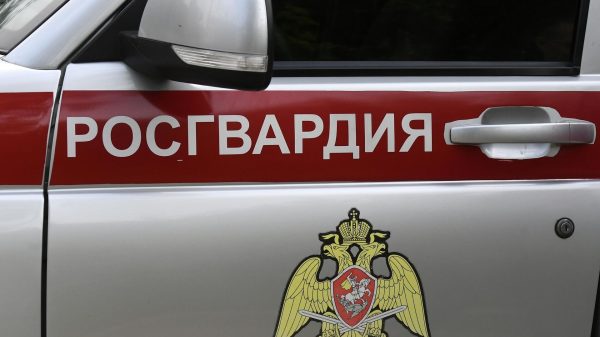






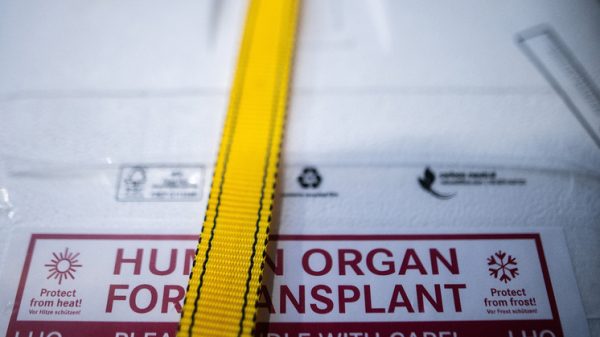
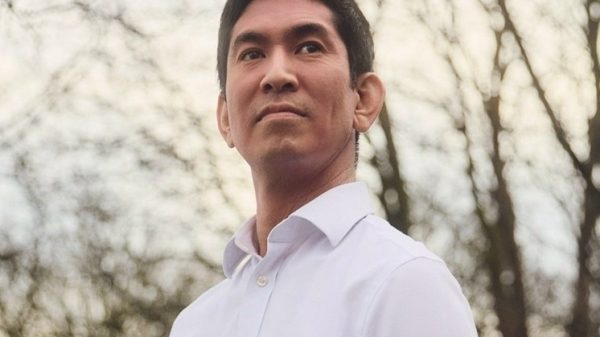

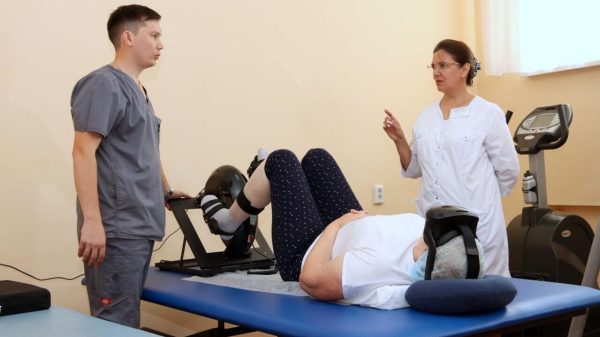













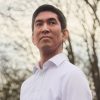


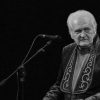
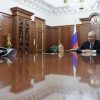















Свежие комментарии